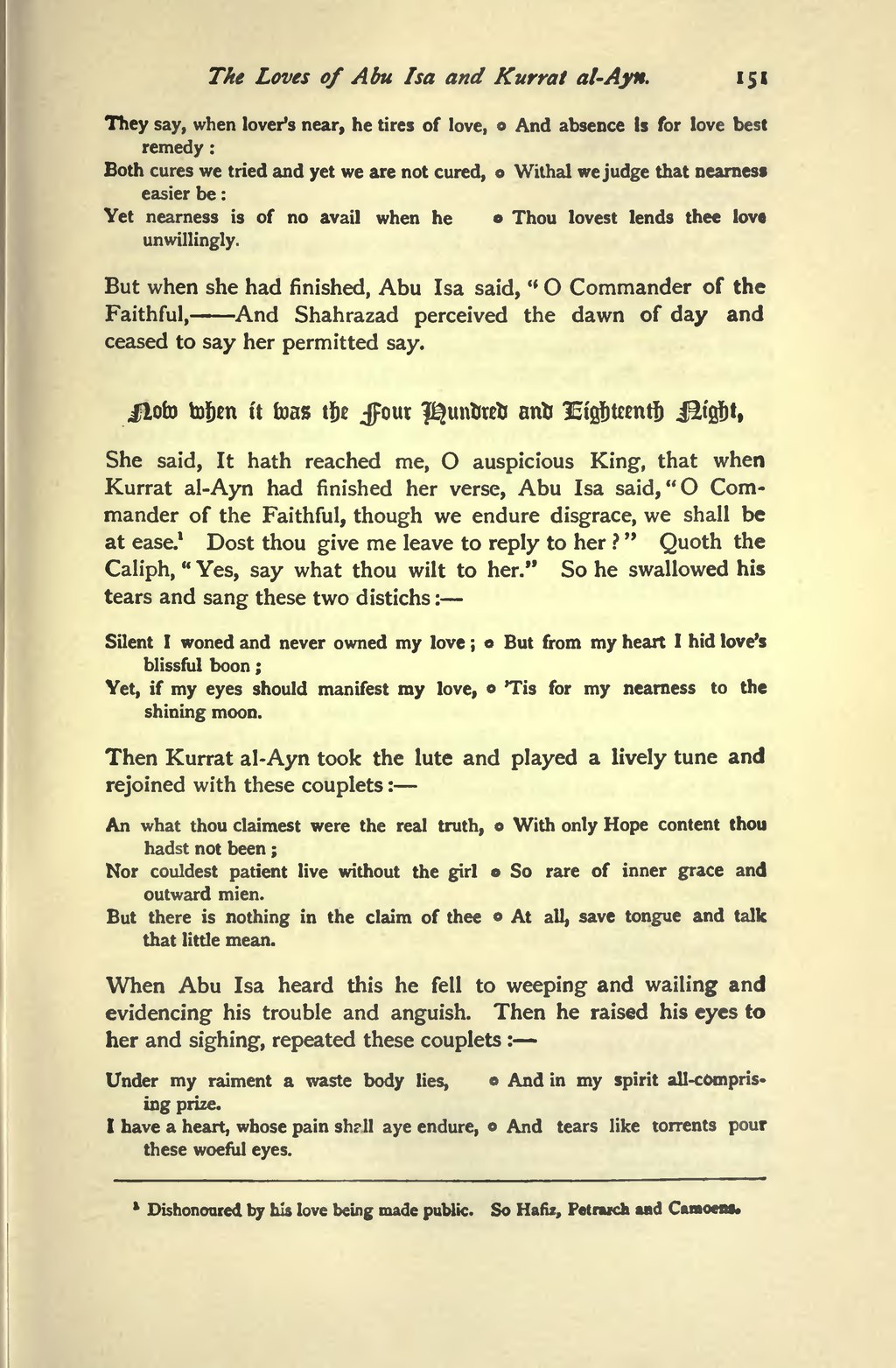They say, when lover's near, he tires of love, * And absence is for love best remedy: Both cures we tried and yet we are not cured, * Withal we judge that nearness easier be: Yet nearness is of no avail when he * Thou lovest lends thee love unwillingly."
But when she had finished, Abu Isa said, "O Commander of the Faithful," -- And Shahrazad perceived the dawn of day and ceased to say her permitted say.
When it was the Four Hundred and Eighteenth Night,
She said, It hath reached me, O auspicious King, that when Kurrat al-Ayn had finished her verse, Abu Isa said, "O Commander of the Faithful, though we endure disgrace, we shall be at ease. [FN#223] Dost thou give me leave to reply to her?" Quoth the Caliph, "Yes, say what thou wilt to her." So he swallowed his tears and sang these two distichs,
"Silent I woned and never owned my love; * But from my heart I hid love's blissful boon; Yet, if my eyes should manifest my love, * 'Tis for my nearness to the shining moon."
Then Kurrat al-Ayn took the lute and played a lively tune and rejoined with these couplets,
"An what thou claimest were the real truth, * With only Hope content thou hadst not been Nor couldest patient live without the girl * So rare of inner grace and outward mien. But there is nothing in the claim of thee * At all, save tongue and talk that little mean."
When Abu Isa heard this he fell to weeping and wailing and evidencing his trouble and anguish. Then he raised his eyes to her and sighing, repeated these couplets,
"Under my raiment a waste body lies, * And in my spirit all comprising prize. I have a heart, whose pain shall aye endure, * And tears like torrents pour these woeful eyes.
